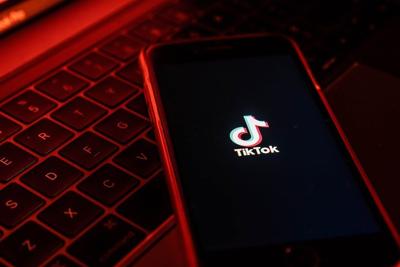This editorial was originally published by The New York Times and was distributed by The Associated Press.Ā
Not so long ago, the confrontation between the U.S. government and TikTok looked to be a rare 21st-century example of bipartisan seriousness to protect the national interest.
In President Donald Trumpās first term, he was among the earliest political leaders to point out the security risks of having a Chinese company control one of the largest American social media platforms. After President Joe Biden took office, he adopted a similar stance. Last year, Congress passed a bill by overwhelming votes ā 360-58 in the House and 79-18 in the Senate ā requiring that TikTokās parent company, ByteDance, sell it, and Biden signed the bill. In January, the U.S. Supreme Court upheld the lawās legality in a unanimous vote. Every branch of the federal government seemed aligned.
But this bipartisan resolve collapsed in a matter of days, as Biden left office and Trump began his second term. For the past six months, the Trump administration has simply refused to enforce the law. TikTok continues to operate as before. ByteDance (which, like all Chinese companies, answers to the ruling Communist Party) continues to amass personal data about Americans and shape national discourse through its secretive algorithm for promoting videos. The Chinese government has long exercised tight control and censorship in its own country ā and now potentially has outsize influence over information in the United States.
Legal scholars, be they liberal or conservative, have criticized Trumpās nonenforcement as illegal. Among the many lawless acts of his second term, the disregard for a recently passed federal law is among the most brazen. It is also a gift to the worldās most powerful authoritarian government.
Two alarming features of the current political scene have carried us to this point. The first is Trumpās tendency to put his interests ahead of the rule of law and national security. He reversed his position on TikTok last year after meeting with Jeff Yass, a major donor to Republicans whose company owns part of ByteDance. (Trump said they did not discuss the app.) The presidentās announcement lacked any coherent justification, although he did note that he had become āa big starā on the platform. By Inauguration Day, he had amassed nearly 15 million followers, and he clearly recognized that the platform helped him spread his message.
Trumpās approach empowers him in key ways. Not only can he and his allies continue using TikTok, but he also has leverage over ByteDance and the tech companies that host TikTok on app stores or servers, including Google, Apple and Oracle. Under the law, the Justice Department can fine companies that keep TikTok on U.S. app stores and servers. After Trump delayed the ban, the department promised that it would not penalize the companies for disobeying the law, but that promise is hardly binding. As a result, these companies, including ByteDance, have reason to want to remain in the good graces of the administration.
āCorporations operate under a sword of Damocles in every interaction with the White House,ā Alan Z. Rozenshtein, of the University of Minnesota Law School, has noted.
The second factor is broader than Trump. It is the meekness of Congress, especially in response to his power grabs. The founders intended Congress to be the most active of the three branches of government. That is why it is the subject of Article I of the Constitution. The Founders worried about the rise of another king, and they saw a powerful legislature as protection against that possibility.
The passage of the TikTok law seemed like an example of Congress living up to the Foundersā aspirations. Lawmakers worked across party lines and acted decisively on a security risk. The aftermath of the lawās passage, however, has highlighted the Foundersā fears. Trump has ignored the law, and Congress has done little in response. It has not held new hearings to highlight the TikTok threat. It has not sued Trump for refusing to enforce the law. It has not made enforcement of the law a condition of passing other legislation, such as on tax cuts and enhanced border security. While some lawmakers on both sides of the aisle have spoken out, they cannot do much when the Republican majority is intent on acceding to Trump.
This timidity has become the norm for Congress, in areas far beyond this law. Legislators have voluntarily surrendered their power to the president and frequently act not as the heart of the American government but as a rubber stamp for one man.
Trump has shown himself unwilling to confront China on TikTok for selfish reasons. Congress should step up. It should do what the Founders intended and act as a bulwark of American democracy. It should insist that Trump enforce the law.











